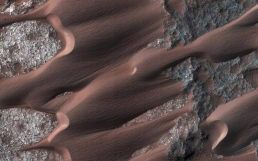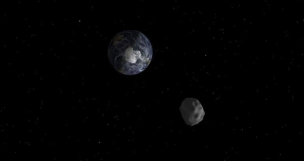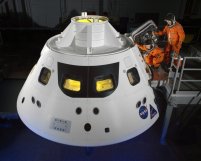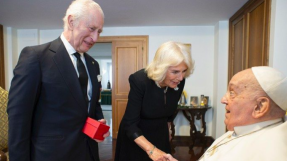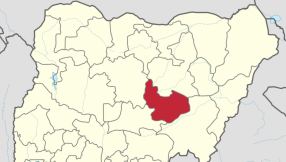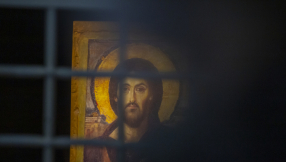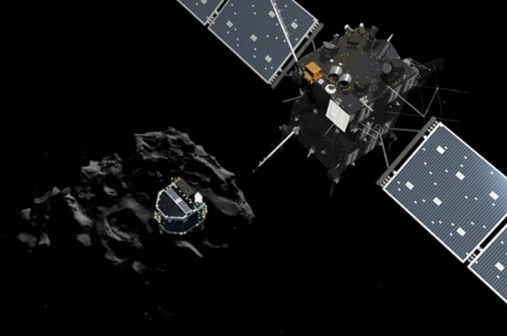
As if waking up from a long, deep slumber, the world's first ever comet lander has once again made contact with its team back on Earth after months of hibernation.
The European Space Agency (ESA) announced in a short but enthusiastic statement on Sunday that the unmanned comet lander Philae transmitted a number of signals to an operations centre in Darmstadt, Germany.
The signals, transmitted through Philae's orbiter "Rosetta," was received by the operations centre on Earth on June 13 at 10:28 p.m., local time.
The space agency said the comet lander Philae, which appeared to be functional even before sending some signals to Earth, "spoke" for 85 seconds and transmitted more than 300 packets of vital "historical data."
Philae became the first spacecraft from Earth to ever touch down on a comet last November when it landed on 67P/Churyumov-Gerasimenko.
The unmanned comet lander, however, ran out of battery life after it settled in a spot on the comet where it did not get as much sunlight as necessary.
To be able to transmit signals again, Philae needed to pack up about 6 watts of power to reboot itself, 9 watts to accept communications and 19 watts to be able to exchange messages with Rosetta.
Dr. Stephan Ulamec, who leads the Philae Project at the German Aerospace Centre (DLR), said the newly awoken comet lander "is doing very well" at present.
"The lander is ready for operations. It has an operating temperature of -35ºC and has 24 watts available," Ulamec explained.
Philae's system engineer Laurence O'Rourke meanwhile said the re-establishing of contact with the space lander will allow space scientists "to do more science."
"We are all delighted—delighted that Philae survived the long winter. It's a great opportunity," O'Rourke said.
Space scientists are now eager to check out new images that Philae transmitted and will transmit, especially since the comet where the lander is located will make its closest approach to the Sun this August.
"I think we are going to see some amazing images at that point," O'Rourke said.










